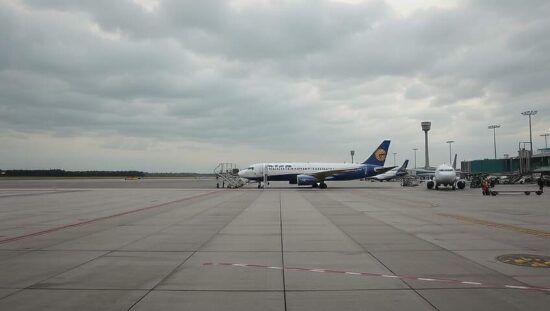The German aviation sector is experiencing a complex shift in strategy following a coalition agreement to reduce the air passenger levy (“Luftverkehrssteuer”) starting July 2026. Lufthansa, the country’s flagship carrier, is now retracting plans for further route cancellations, a move largely attributed to the anticipated reduction in this tax.
Jens Ritter, CEO of Lufthansa’s core brand, confirmed to Funke-Mediengruppe publications that planned cuts to domestic routes, previously jeopardized by high operational costs, will be avoided. This includes maintaining vital connections between Munich and Münster/Osnabrück, securing the future of Dresden Airport’s service and preserving current levels of service at Bremen, Hanover, Stuttgart and Hamburg airports – the latter served by Lufthansa’s subsidiary, Eurowings.
While this represents a reprieve for regional connectivity, Ritter stressed that the coalition’s initiative does not resolve the industry’s broader financial pressures. Previously announced cuts, amounting to approximately 50 weekly feeder flights scheduled for the summer of 2026, will proceed as planned – representing frequency reductions rather than outright route closures. This highlights the continuing fragility of less profitable regional services despite the impending tax relief.
Calls from within the conservative Union faction for immediate and substantial reductions in air ticket prices in response to the coalition agreement were dismissed by Ritter. He argued that predicting price impacts at this stage is premature, emphasizing the multitude of factors that influence ticket costs. Crucially, Ritter pointed to the significant role of air traffic control fees and airport security charges, demanding that these too be lowered to achieve tangible benefits for consumers. The cost of operation, he argued, extends far beyond the passenger levy, underscoring the intricate and multifaceted nature of airline pricing.
The current situation presents a politically charged landscape for German aviation. While the coalition’s promise of tax relief offers a degree of stability, Lufthansa’s continued focus on operational efficiencies – including frequency reductions – exposes deeper structural issues within the industry. The airline’s refusal to automatically translate the upcoming levy reduction into lower ticket prices signals a clear message: any meaningful change requires a holistic approach, tackling the multiple and often overlooked, cost drivers impacting flight prices. The success of the coalition’s aviation policy will ultimately depend on addressing these broader concerns and ensuring sustainable, affordable air travel for all regions of Germany.





